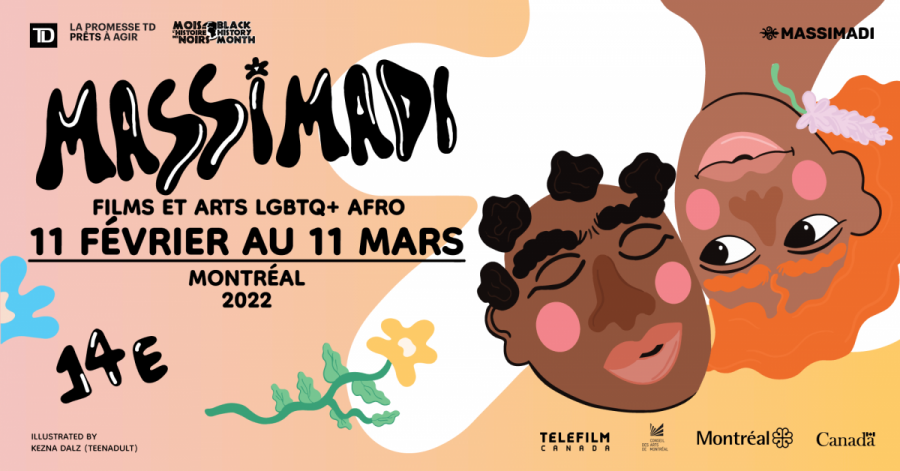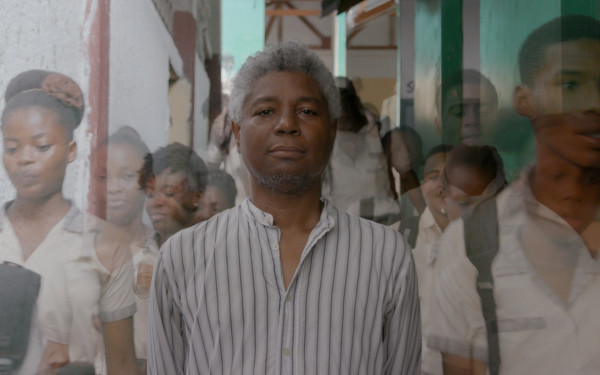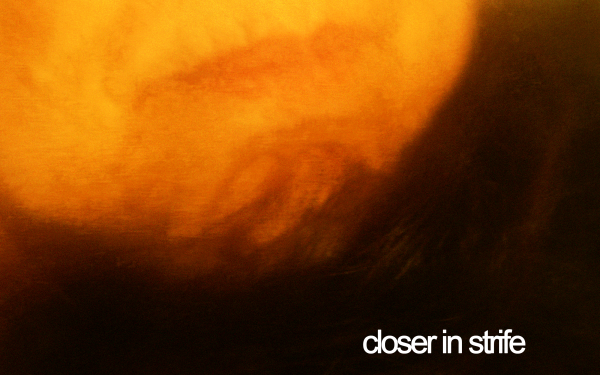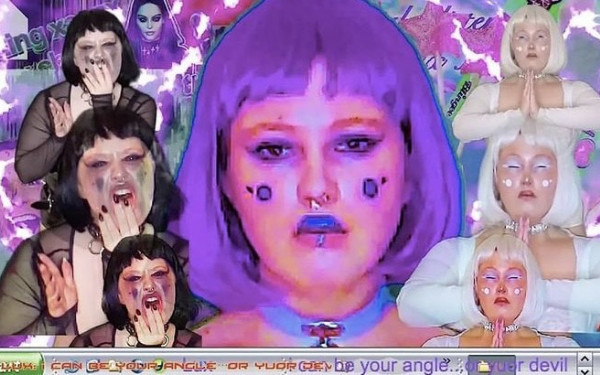Massimadi Festival celebrates Black filmmakers and their stories
The festival presents 27 films about a multitude of Black queer experiences
The 14th edition of the Massimadi Film Festival is ongoing and will run until March 11. This online festival is free for all attendees.
The festival fetures 27 films from genres that range from drama, comedy, and documentary. These pieces feature stories from Black LGBTQIA+ communities from all over the world.
For example, Can You Bring It: Bill T. Jones and D-Man in the Waters, directed by Rosalynde LeBlanc and Tom Hurwitz, follows a revival of the acclaimed dance piece, “D-Man in the Waters." Bill T. Jones choreographed this piece to address the grief and loss felt by queer communities during the AIDS epidemic. In the film, LeBlanc teaches this choreography to new generations of dancers—an initiative to revive a unique brand of artistic intensity from the 1980s.
Meanwhile, “Shea” is a short documentary that celebrates the interconnectedness of peoples from African descent. Directed by Effy Adar, the story follows a family displaced by poverty and their subsequent search for a new home in a new country.
Viewers immerse themselves in diverse realities—an experience that encourages understanding and open-mindedness, according to event organizers.
A film on body acceptance
One documentary that accomplishes the festival's mission is “Body Politics,” directed by Aisha Fairclough. The filmmaker follows her romantic partner and member of Ontario's Legislative Assembly, Dr. Jill Andrew.
The film offers an intimate look at Andrew’s political trajectory as a queer, Black, Canadian woman. Fairclough focuses on Andrew’s long standing fight for human rights and body justice.
“There is this idea of what a politician is supposed to look like. If you look within the walls of Queen’s Park, you don’t see a lot of Black women, much less, Black queer fat women.” — Aisha Fairclough
The director explained that body justice expands beyond fat acceptance.
“When people think of body positivity, they focus on size,” she said. “But, if you do not have shelter, if you do not have food, if you do not have human rights, you can’t have confidence in your body.”
She explained that there is a direct link between body acceptance and security. So, in her film, she frames body acceptance as a human rights issue—not a vanity issue.
Another reason why Fairclough made the film was to “show people what change-makers [like Andrew] look like.”
Since her election to the legislature, Andrew has hosted an Eating Disorders Awareness Week roundtable, organized a women's issues listening tour, and formed a cultural advisory council. Outside of her political work, she co-founded Body Confidence Canada, an organization that promotes body diversity in the media.
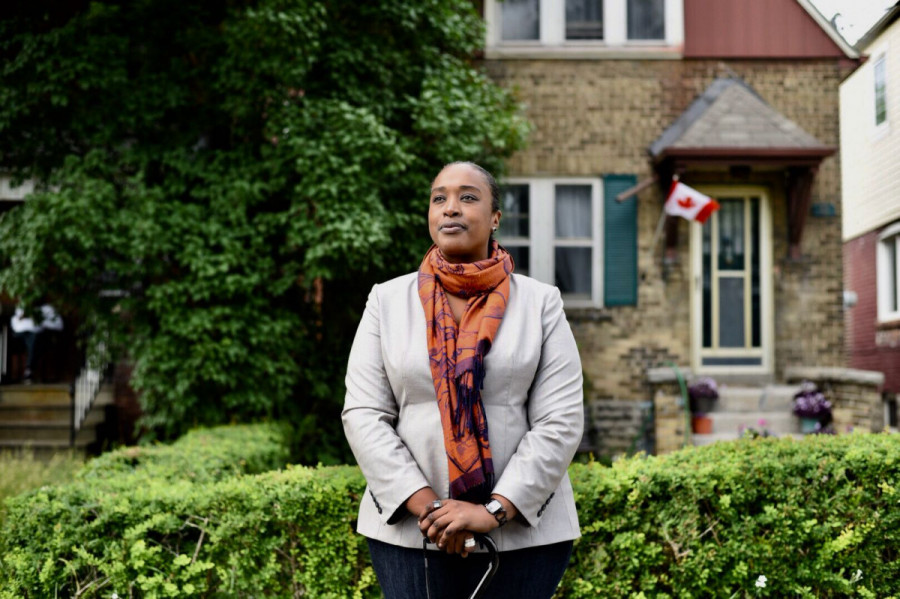
“There is this idea of what a politician is supposed to look like. If you look within the walls of Queen’s Park, you don’t see a lot of Black women, much less, Black queer fat women,” said Fairclough.
President of Massimadi Festival Laurent Lafontant noticed that the Canadian films in the line-up have themes of body acceptance.
“I found it interesting that the Canadian filmmakers focused their stories on this topic. This shows that this is a deep-rooted issue in this country,” he said.
“Body Politics” celebrates the accomplishments of a woman who refuses to abandon the issues she deems important.
A drama-comedy with a warning
While many films at Massimadi concentrate on socio-political issues, others focus on personal stories.
Debut filmmaker Jo Güstin directed a short film called, “Don’t text your ex,” starring Biko Beauttah, Carol Bailey, and Jaslyn Marshall.
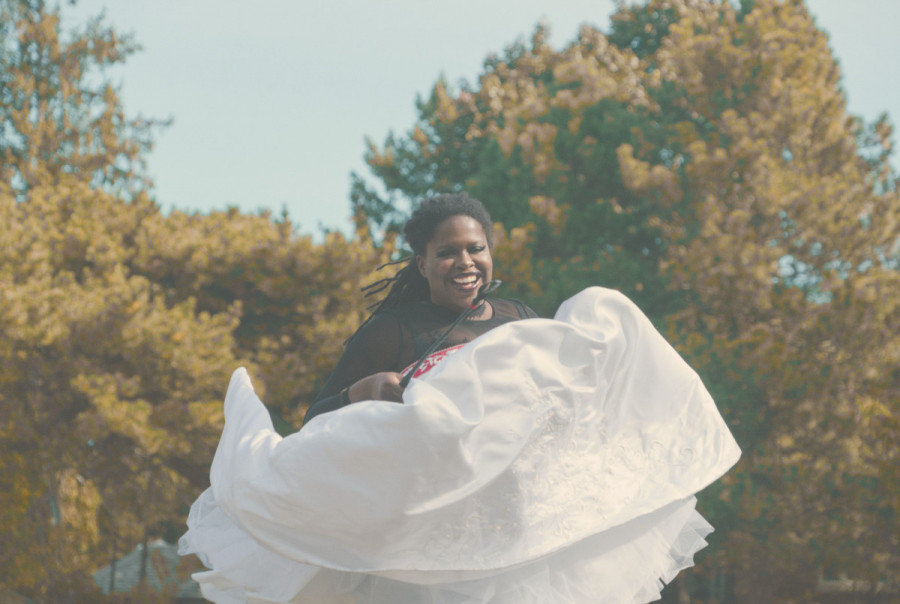
““Don’t text your ex” is a 10 minute, 12-second romantic drama-comedy,” said Gūstin.
She compared filmmaking to childbirth—no part of the process is pleasant, but the finished product feels sweet. She is now happy to present her film to a Montreal audience.
Güstin was inspired to create this film from her impossible wish to rekindle her relationship with an ex-partner.
She indulges in this fantasy through a fictional, queer, and elderly couple.
Read more: Poetry collection ‘ZOM-FAM’ finds meaning in silence
“If a relationship does not work, that does not mean that it’s over [forever]. Sometimes, the couple gets back together in the future,” she said. “When you’re heartbroken, this is the option that you wish for.”
Even though the story plays into Güstin’s fantasy, it also serves as a public service announcement against texting ex-partners.
Absurdist and surreal, the characters often break the fourth wall to offer advice into a blinking camera. "Doctors can't fix queer heartbreak," says one character.
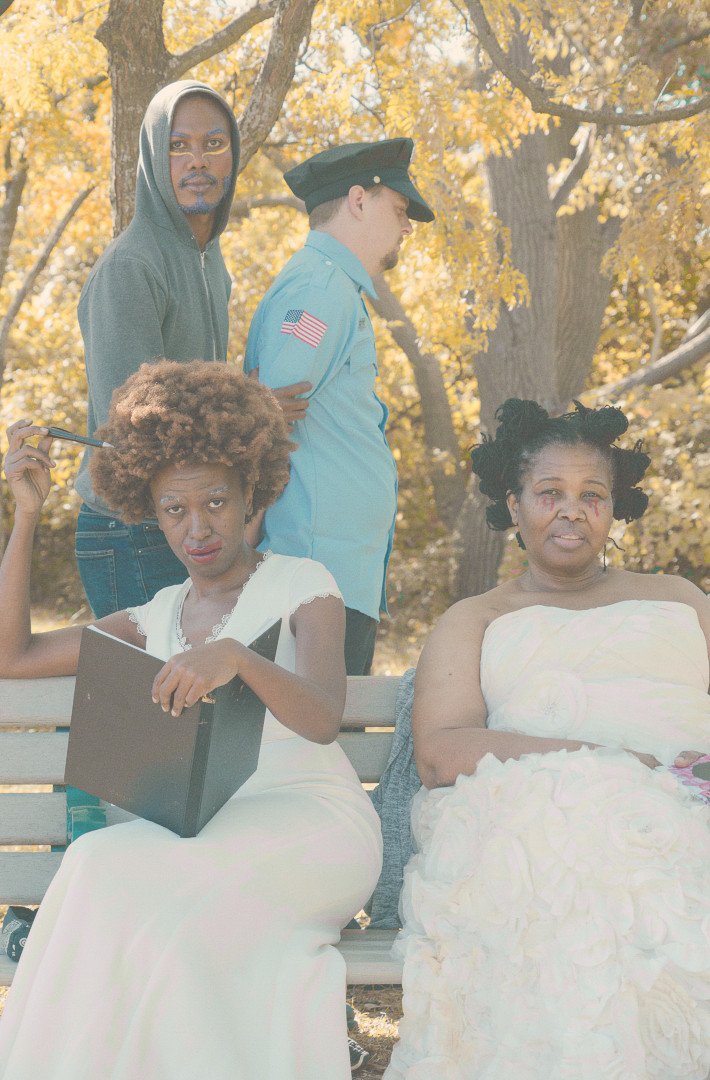
In another scene, the same character says that texting your ex “can kill you.” She tells the story of her friend who died when ex did not respond to her text message. To forget about this failed exchange, she placed her phone on top of a wardrobe, lost her balance, fell, and broke her leg. After a few more unfortunate events, she died.
“The pandemic has been detrimental to the mental, emotional, physical, and financial well-being of marginalized communities. People have been losing all desire to go outside because they are Black or Asian. People have been losing their minds,” said Güstin.
“Can you imagine if, on top of that, they started messaging their exes? Haven’t our communities suffered long enough?” she said.
Even though Güstin asked these questions jokingly, she does believe in the mental health benefits of ending communication with an ex-partner.
Open hearts and minds
President of the Massimadi Festival, Lafontant, hopes the films will open the hearts and minds of attendees. “We hope that these movies and talks can break barriers, create bridges, and combat ignorance,” he said.
On Feb. 18, Massimadi will host a panel discussion following the movie, Someone Like Me, directed by Sean Horlor and Steve J. Adams. This film follows a group of activists in Vancouver who help a queer Ugandan find asylum in Canada—a story of friendship and survival.
“[The panel discussion] will have a conversation with AGIR, an organization that works with asylum seekers and refugees in Montreal,” said Lafontant.
Massimadi Festival has a mission to promote Black LGBTQIA+ artists. Another of their goals is to combat racism, homophobia, and transphobia. With this aim, the festival brings Black LGBTQIA+ stories to the forefront of Montreal's consciousness.

